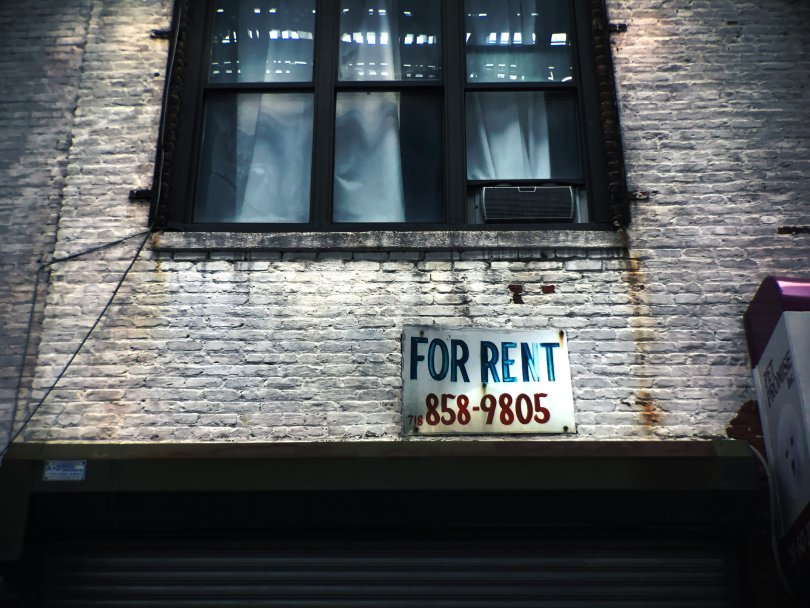
Growth and crisis

Picture by Jonas Tebbe on Unsplash
In 2020, the city of Berlin adopted a radical policy to deal with soaring prices in the rental market: a rent freeze. This measure, meaning a cap to the rents that landlords were allowed to charge, was not as successful as had been hoped. As well as being declared unconstitutional thirteen months later, it has had negative economic and social consequences, as shown by economists Anja Hahn, Konstantin Kholodilin, Sofie Waltl and Marco Fongoni.
In the space of ten years, the rent paid in Berlin by its four million inhabitants has doubled. As density has increased, the gap between supply and demand of rental units has widened, leading to a housing shortage. It is becoming increasingly difficult to find accommodation: for a one-bedroom flat in the city centre, expect to pay between €800 and €1,200. Rising rents are a real challenge for Europe's major cities. The question of which strategies to adopt is the subject of much government discussion. This is precisely why Berlin's new measure was so popular when it was announced in February 2020. This is a special case study, as the City Council had brought back a policy that had fallen into disuse: rent freeze. When it was announced, all eyes were fixed on this measure, which was as bold as it was short-lived. No sooner had it been enacted than it was immediately suspected of being unconstitutional. In the thirteen months of its existence, it had a significant impact on the Berlin rental market, as economists Anja Hahn, Konstantin Kholodilin, Sofie Waltl and Marco Fongoni have shown in a recent pioneering article on the subject.
Although rents are more affordable than in Paris or London, the state of Berlin's rental market has deteriorated over the last decade. This is a major problem in a capital where 80% of the population rent. What is more, the cost of housing accounts for an ever-increasing proportion of household expenditure, sometimes as much as 50%.
Demographic pressure, gentrification and the lack of vacant accommodation led more than 25,000 Berliners to demonstrate at the beginning of April 2019 to fight against property speculation and this "rent madness". At the same time, a petition which collected more than 77,000 signatures was circulated to denounce the monopoly of large property groups that own more than 3,000 homes.

Picture by Jose Alonso on Unsplash
This situation prompted the municipal authorities to make a radical decision, to say the least, by declaring a five-year freeze on rents in Berlin. A new law was drafted, alongside associations such as the Berliner Mieterverein, and enacted on 23 February 2020. It announced that rents within Berlin's administrative boundaries would be set a posteriori at the June 2018 level for five years. The law defined a 'valid' rent of between EUR 3.92 and EUR 9.80/m2 per month, depending on the year of construction, the facilities provided and the location. Thanks to this law, tenants whose rent was too high could have it checked by lodging an appeal. New tenants were also protected, as any breach of the law was punishable by a fine of up to 500,000 euros.
In Europe, the major cities watched this announcement with interest, as they face the same challenge. Not only was the idea taken up in other German regions, such as Bavaria, where a referendum was launched by the federal government, but it has also been on the table in European discussions, such as in London, where Mayor Sadiq Khan exclaimed: "If Berlin can freeze rents for five years, there’s no reason London shouldn’t be able to freeze rents for two years in these extraordinary times.".
The introduction of this policy was not only met with enthusiasm. It was also a source of criticism, as it is seen as dangerous according to the economic consensus. In fact, capping rents can have a negative impact, to say the least, by reducing the quantity and quality of housing on the market. For example, landlords may be encouraged to occupy their property themselves rather than rent it out. It is against this backdrop that the economists decided to study its short-term impact.
The law was also the subject of an appeal to the Constitutional Court by the conservative opposition parties. As a result, after only thirteen months in force, it was declared unconstitutional and withdrawn. The Court found that the local government had exceeded its functions by legislating in an area for which the federal state had jurisdiction.
In fact, as soon as it was submitted by the Berlin City Council, the law was suspected of being unconstitutional by property owners. As a result, a strange rental practice developed, consisting of offering a "double rate" in rental advertisements. This double rate included the price required by law, and the true cost of rent in the event that the law was withdrawn for unconstitutionality. In February 2020, for example, 11% of ads appeared with a dual rate, a figure that rose steadily throughout the year, from 34% in March 2020 to 45-50% in March 2021, according to the economists. This practice enabled landlords to prevent financial losses by imposing a clause requiring the tenant to repay the difference if the rental freeze was lifted.

Picture by Vidar Nordil Mathisen on Unsplash
Despite its unconstitutionality, was the law effective? This team of researchers is among the first to explore the short-term and immediate consequences of this policy on the Berlin rental market. A radical and unusual policy, the rent freeze represented a unique opportunity to study the effects of such a shock on the market. The scientists' conclusions are quite clear: despite its good intentions, the policy had rather disastrous consequences.
Admittedly, it led to an immediate fall in rent prices of between 7% and 11%. However the economists show that prices rose at the same time in neighbouring municipalities and in Potsdam, Berlin's satellite city. The authors extended the study to the entire metropolitan area, taking into account the border region, which was not subject to the rent freeze. The law in fact applied only to property units located within the administrative boundaries of the city of Berlin. All along this “frontier, the two rental markets moved in opposite directions. While rents within Berlin were frozen, those for properties located just across the city boundary were skyrocketing, suggesting a substitution effect. Further, a number of landlords withdrew their properties from the market, which considerably reduced the housing options in Berlin, forcing some of the city's population to move to neighbouring cities. The growth in demand in these border areas has therefore led to an increase in rents.
So the most important consequence of the law was not in terms of price trends, but in terms of the number of homes available. The law discouraged the letting of new flats. On the contrary, it led most landlords to occupy their property themselves rather than rent it out, or to carry out modernisation, meaning they would not be subject to the rent freeze regulation. For example, Vonovia, a major investment fund and owner of 40,000 rental units in Berlin, estimated its financial loss at €10 million and threatened to stop renovating its housing stock as a result. Since the law did not apply to housing built after 2014, the idea was to focus on long-term construction rather than short-term supply.
As a result, fewer and fewer homes were available on the Berlin market, which was particularly detrimental to new arrivals. The 18-35 age group is more likely to be the most affected by these upheavals, struggling to find suitable accommodation. Finally, the authors show that the effects of the law are likely to persist, since a large proportion of rental properties have left the market.
If such a policy, despite its initial objective, is not ultimately beneficial to tenants, how can we respond to the housing crisis?
The study allows the authors to state that the rent freeze did not adequately meet tenants' needs. Other policies offer more effective tools for controlling rent increases. These may be strategies to protect tenants through limiting rent increases over time, or strategies to increase the rental stock, for example by taxing vacant homes or encouraging new construction. Finally, other indirect measures can also be considered, such as those proposing an increase in the minimum wage to facilitate access to the rental market.